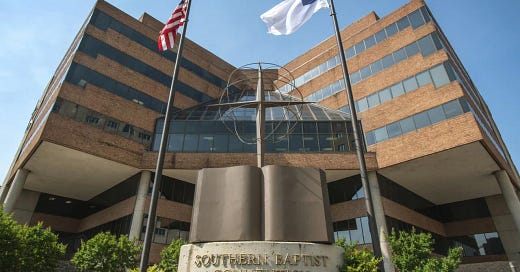SBC Executive Committee addresses accountability, abuse response and financial woes at recent meeting
Editor’s Note: This story has been updated from its original version to include comments made by Jeff Iorg, President of the Southern Baptist Executive Committee, about the controversial decision to use Cooperative Program funds to pay for legal costs.
Below are significant highlights from the recent meeting of the Southern Baptist Convention Executive Committee on Feb. 17-18 in Nashville.
A revised Business and Financial Plan, which will be presented at the June Southern Baptist Convention Annual Meeting June 10-11 in Dallas, aims to enhance trustee transparency and governance.
SBC Executive Committee President Jeff Iorg told trustees a revised and streamlined document emphasizes alignment with the SBC’s constitution and promotes accountability among the governing boards with a focus on transparency.
Iorg said the new plan provides a “clearer pathway” for church members to access information on compensation and financial practices. The move is intended to ensure that entities maintain transparency in their business operations. It appears to be in response to concerns raised during annual meetings and critics of SBC agencies such as the North American Mission Board and the Ethics and Religious Liberty Commission.
It was announced that the SBC ended its affiliation with seven churches following reports from an abuse hotline.
Since the hotline's inception in May 2022, it has received a total of 1,008 contacts, of which 674 were allegations of abuse. Among these, 458 (68%) involved Southern Baptists, while 216 (32%) were unrelated to the SBC, it was reported.
Iorg did not name the churches that were disaffiliated.
The Executive Committee announced that it can no longer avoid using Cooperative Program funds for legal expenses by paying out of reserves and will recommend to messengers at the SBC annual meeting that a special allocation of $3 million from the proposed $190 million 2025-2026 SBC CP Allocation Budget for this purpose.
Liam Adams @liamadams, a religion reporter with The Tennessean posted the following comments on X/Twitter Iorg made explaining the need for the budget recommendation and responding to anticipated push back among rank-in-file Southern Baptists:
“We do not know the total legal expenses we may face over the next few years. But here’s our present reality: decisions were made by the messengers in 2021. Those decisions have consequences. Those consequences have costs. And those bills are due, and they must be paid.
“This is a controversial and difficult recommendation to make. No mission centered Southern Baptist wants to take this action. I don’t, you don’t, no one does. But we have exhausted other definitive options. We have used the executive committee reserves, we have cut staff and programs, we have borrowed money, and we are attempting to sell our building. We have reached the point where the instructions from the original motion must now be implemented, directly paying for the investigation and its results with Cooperative Program funds.
“If this budget recommendation is adopted, however, some pastors may consider redirecting their Cooperative Program gifts because they say, ‘I don’t want my CP going to pay legal bills.’ I’m going to speak to pastors now and I hope you will consider these next observations as you make your decision on this issue.
“First, paying legal bills with Cooperative Program funds is not a new practice. Our current situation is just more public than most. All SBC entities and state conventions employ attorneys or contract with law firms to represent them. We live in a litigious world and it’s only getting worse. We have always paid, and we will continue to pay indefinitely into the future legal costs of doing business in this culture. And those payments will be made with Cooperative Program funds. Second, the ethical dilemma for Southern Baptists is not centered on using funds to pay legal bills but keeping our word and paying our debts. While the messengers who voted for the investigation may not have understood the full cost of their decision — and most Southern Baptists were not in the room when the vote was taken — the resulting bills are in our name, Southern Baptists, and they must be paid. Third, the executive committee is defending the SBC in all these legal actions. We have never initiated any legal action against anyone. We are defendants. We are defending the SBC, executive committee officers and personnel. We cannot control who sues us. But for the sake of our mission, we the executive committee are provided with the responsibility of providing a robust defense when lawsuits are filed against us.”
It was announced in September 2024 that the downtown offices of the Executive Committee in Nashville are being sold due to massive legal expenses and other costs incurred from an abuse investigation.
Financial woes stem from a third-party investigation into Southern Baptist leaders’ handling of an abuse crisis, coupled with decreasing revenue from the denomination’s Cooperative Program budget funded by church contributions.
Since a May 2022 report by Guidepost Solutions, the SBC has faced lawsuits and a U.S. Department of Justice investigation, resulting in the Executive Committee spending $12.1 million between October 2020 and July 2024 to cover lawyers’ fees and other legal expenses.
Related:




